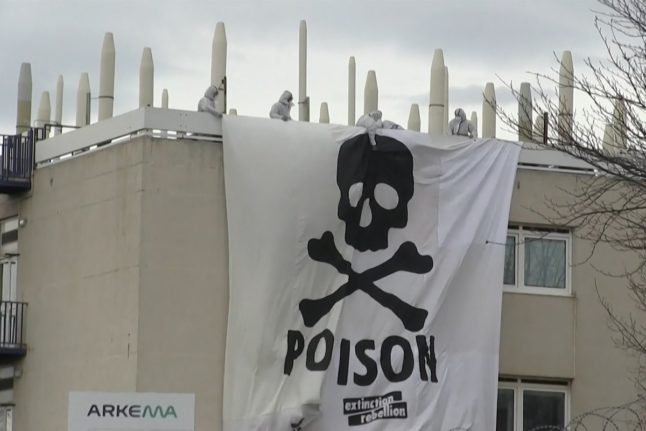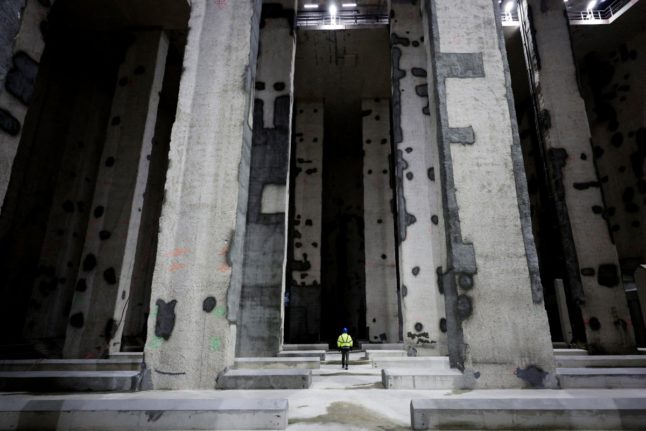Around 300 people from the Extinction Rebellion and Youth for Climate groups cut through fences to reach the Arkema site at Pierre-Benite factory near Lyon in southeast France, a spokesman for the organisers said.
Once inside they deployed banners and spray-painted graffiti including “PFAS tell the truth” and “Arkema is poisoning us”. Police counted around 150 protesters.
“We want to close to door for the ‘forever chemicals’ that Arkema is dumping into the Rhone river,” Julien, a spokesman for the organisers, told AFP.
“And at the same time, we want to open the door because everything that’s happening here is being done in secret,” he said.
PFAS, Per- and polyfluoroalkyl substances), are a family of around 4,000 chemical compounds often referred to as “forever chemicals” because of their long lifespans in bodies and the environment. They resist grease, oil, water and heat.
Experts say that exposure to some types of PFAS have been linked to serious health effects.
American regulators said this week that materials with PFAS would no longer be sold to package microwave popcorn or other greasy foods in the United States.
READ ALSO: French study warns of pesticide traces in water
Arkema said in a statement that the Pierre-Benite site would stop using PFAS compounds to manufacture its products by the end of this year.
France’s industry minister Roland Lescure denounced the protest, saying on X that “Disagreeing and debating, yes. Destroying, no”.
The protest came as another chemicals group, Daikin, is seeking to build a new production site nearby, which has sparked protests from residents.
Regional authorities said: “The new site from Daikin will not lead to PFAS runoffs in the water, unlike the Arkema site which has been subject to a September 2022 decree that calls for halting the use of PFAS surfactants by the end of 2024.”



 Please whitelist us to continue reading.
Please whitelist us to continue reading.
Member comments